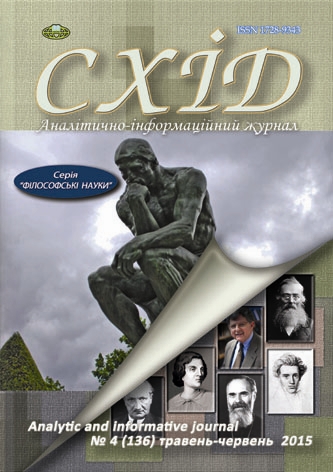Theology and secularization: the paradox of Abelard
DOI:
https://doi.org/10.21847/1728-9343.2015.4(136).48331Keywords:
Abelard, theology, scholasticism, secularization, ChristianityAbstract
The article presents an analysis of the teachings of Pierre Abelard from the point of view of how it affected the allocation of the secular spheres of knowledge from totally religious medieval discourse. Scholastic theology, the creator of which is Abelard, is considered as a specific result of philosophical thinking in the ultimate existential circumstances and the token secular shifts in medieval Christian culture.
The author traces the parallels in the personal fate of Abelard and his philosophical teaching, arguing that the thinker did not put secular philosophy above the creeds of the Church and obey the decisions of the Church even if they were contrary to his thinking. However, the progress of Abelard`s thought, his attempt to understand religious tradition, the sayings of the Church fathers and the question of the salvation of the pagan philosophers suggest that in the theology religion excels in a particular field, that can be the subject of discussion, not only the starting point for discourse.Downloads
References
Abelard Peter (1995), Ethics, or Know thyself (translated), Nauka,Moscow, pр. 247-310 (rus).
Abelard Peter (1959), The Story of My Misfortunes (translated), AN SSSR Publisher,Moscow, pр. 80-88 (rus).
Gilson Etienne (2004), Philosophy in the Middle Ages (translated), Respublika,Moscow, 678 p. (rus).
Abelard Peter (1959), The Story of My Misfortunes (translated), AN SSSR Publisher,Moscow, pр. 63-71 (rus).
Pernu R. (2005), Heloise and Abelard (translated), Molodaya hvardyya,Moscow, 242 p. (rus).
Sweeney Michael (2001), Lectures on medieval philosophy (translated), Hreko-latynskyy kabynet Yu. Shychalyna,Moscow, 304 p. (rus)
Fedotov H. P. (1924), Abelard, Brok·Hauz-Efron Publisher, Petrograd, 159 p. (rus).
Downloads
Published
How to Cite
Issue
Section
License
Copyright (c) 2015 Aleksandr Belokobylskiy

This work is licensed under a Creative Commons Attribution-NonCommercial-NoDerivatives 4.0 International License.
1. Authors bear responsibility for the accuracy of facts, quotations, numbers and names used.
2. Manuscripts are not sent back.
3. The publisher does not always agree with the authors' opinion.
4. The authors reserve the right to authorship of the work and pass the first publication right of this work to the journal under the terms of a Creative Commons Attribution-NonCommercial-NoDerivatives 4.0 International License. This license allows others to distribute (copy) the published work for non-commercial purposes, provided there is mandatory attribution to its authors and a link to the first publication in our journal.
5. The authors have the right to conclude separate supplement agreements that relate to non-exclusive work distribution in the form in which it has been published by the journal (for example, to upload the work to the online storage of the journal or publish it as part of a monograph), provided that the reference to the first publication of the work in this journal is included.

